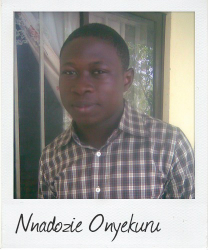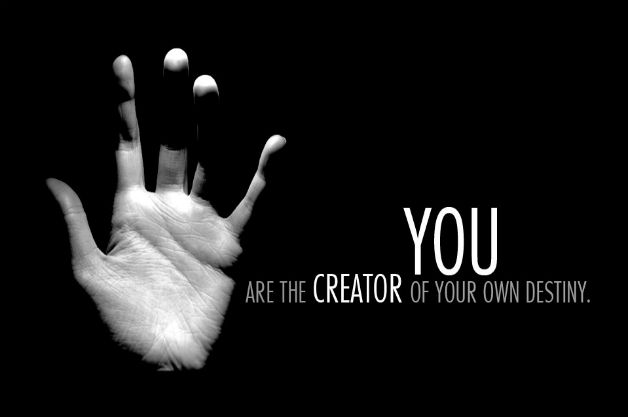“One imperfect man helped shape humanity”
February 5th, 2013 Great men are inspiring for what they overcome as well as for what they achieve, argues Nnadozie Onyekuru, 24, a Commonwealth Correspondent from Maiduguri in Nigeria. Martin Luther King Jr struggled with his conscience, but led a civil rights movement that created a better society.
Great men are inspiring for what they overcome as well as for what they achieve, argues Nnadozie Onyekuru, 24, a Commonwealth Correspondent from Maiduguri in Nigeria. Martin Luther King Jr struggled with his conscience, but led a civil rights movement that created a better society.
Looking at the lives of some great men, one is astonished not just by the courage with which they raised their convictions. There is also the courage with which they faced their weaknesses.
Such weaknesses were usually at first concealed, but by the passage of time were laid bare to the embarrassment of those men in the arena. So it was for King David, for William Jefferson Clinton, for Tiger Woods and for the man who was so recently celebrated.
At the height of his nonviolent activism, Martin Luther King Jr.’s personality was almost damaged by hard blackmail. One November evening in New York’s Kennedy airport, Mr. King met with James Farmer Jr. of The Great Debaters. Their encounter involved a conversation about growing rumours of Mr. King’s indulgence in some episodes of inappropriate habits.
In Bearing the Cross, Professor David Garrow narrates that Mr. King would later talk to another colleague “about his fears of what could happen should the FBI succeed in leaking its material about his personal life. He had thought hard and long about this for two weeks now, and he admitted to himself that there were many instances in which he had sinned, instances that called out for him to do better in the future.”
Every great man is like other men in one aspect of life: failure. One can even suppose that the great man is more vulnerable to failure than his contemporaries in the sense that he can be bogged down by the odyssey of his passion. There are moments when great men need a certain solace from the disappointments of life. Most times, they do not get such solace from those close to them either because those around them do not recognise the need for it or because they feel that their appetite for it is exaggerated.
The most probable consequence of this denial is the great man’s escape into a peculiar unhealthy behaviour no matter how lofty his ideals are. Mr. King himself once admitted to a Chicago audience that “you can never know the agonies and the lonely moments of leadership.”
Yet historians can weave out a web of values in Martin Luther King’s life. There was his civility. His public statements about his relentless antagonist, J. Edgar Hoover, were stripped of hate language. There was his modesty. He lived in a rented house and drove what Professor Garrow called ‘a 1960 Ford with seventy thousand miles on the odometer.’
There was his altruism. When he won the Nobel Peace Prize, he poured out the pecuniary benefits of the prize into his Southern Christian Leadership Conference and her sister bodies. He did not spare anything for his children’s college education as suggested by his wife.
There was also his resilient rhetoric. In Oslo, he said, “I refuse to accept despair as the final response to the ambiguities of history”. At the Lincoln memorial, he said, “We refuse to believe that the bank of justice is bankrupt.” His landmark I have a dream speech, steeped in metaphors, was an epitome of persevering belief in better days for the oppressed and the unsatisfied.
Yet he struggled inside with his conscience as much as he struggled with his oppressors outside. In the end, he overcame. He was that man in the arena that Roosevelt spoke of in the Sorbonne. His faults remain in the books but are a shadow of his legacy. What the world remembers is that one imperfect man helped to shape a perfect humanity for you and me.
“And the great burden of life is to always try to keep that higher self in command. Don’t let the lower self take over… Every now and then you’ll be unfaithful to those you should be faithful to. It’s a mixture in human nature… Because we are two selves, there is a civil war going on within all of us.”
-Martin Luther King Jr
………………………………………………………………………………………………….
About me:
I am a Nigerian student. I love books. I am young and restless with firm dreams that are only tempered by Christianity. I dream of a world where people, inspired by their common humanity, engage in a global wheel of ideas and do not use history as a tool for blame game but as a lesson for the future. In my spare time, I write stories, speeches and participate in activities that advance the respect of human dignity.
…………………………………………………………………………………………………………………
Opinions expressed in this article are those of the author and do not necessarily represent the views of the Commonwealth Youth Programme. Articles are published in a spirit of dialogue, respect and understanding. If you disagree, why not submit a response?
To learn more about becoming a Commonwealth Correspondent please visit: http://www.yourcommonwealth.org/submit-articles/commonwealthcorrespondents/
…………………………………………………………………………………………………………………




